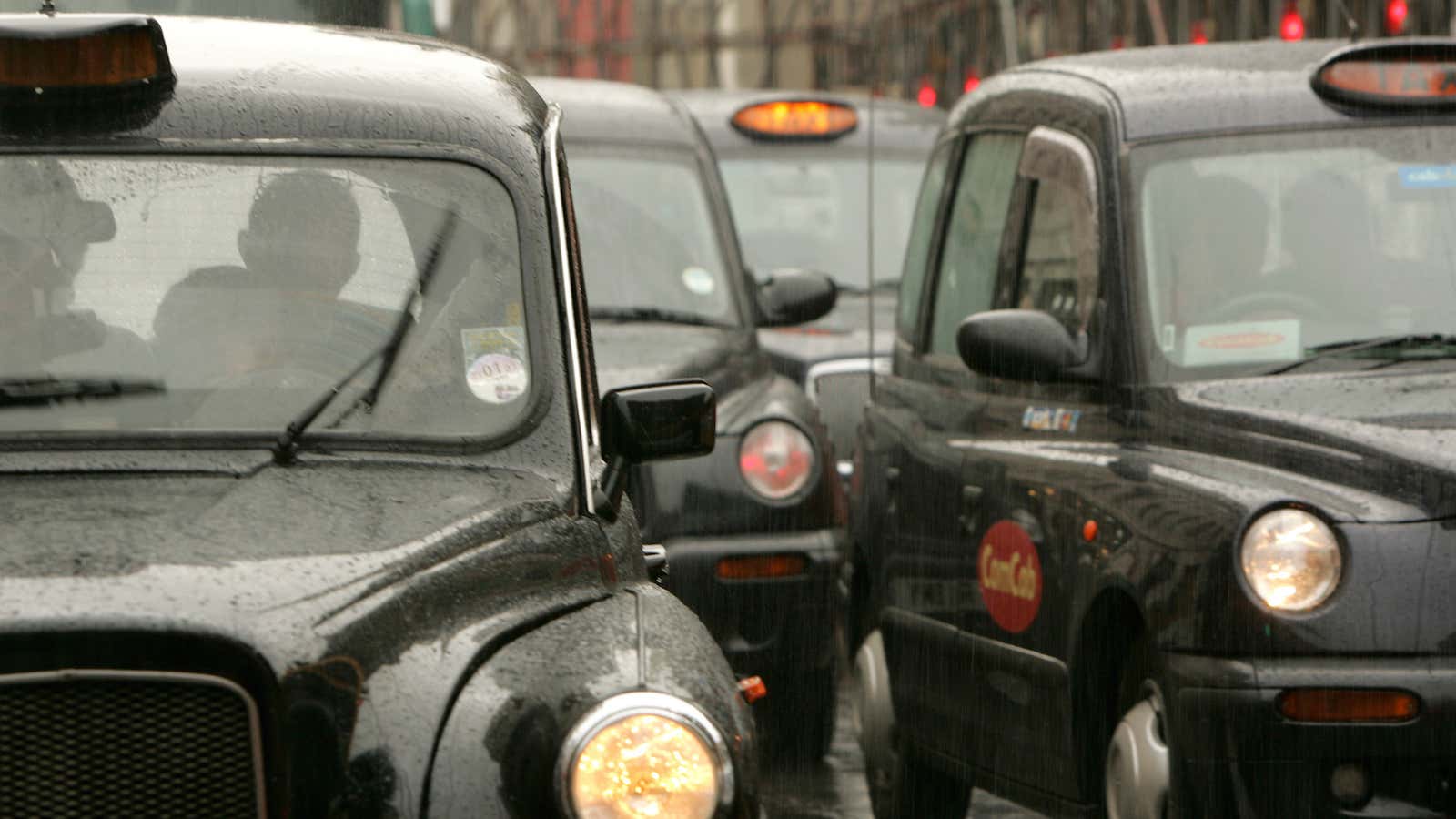“Take me from Park Lane to Earl’s Court,” a customer might say. And a cab driver in London is required to know the quickest way off by heart. That is because they know the center of the British capital; they’ll have committed 320 runs across 25,000 streets, encompassing at least 20,000 landmarks, to memory. And they have passed a test—which has been called the hardest of any kind in the world—to prove it.
London’s iconic black cabs—or Hackney carriages to give them their official name—have been ferrying people around London since coachmen in horse-drawn buggies roamed in Oliver Cromwell’s time in the 1600s. In 1851, following the Great Exhibition when people complained that cab drivers had no idea where they were going, “the Knowledge” was created—requiring everyone who wanted to drive a taxi to pass a test on the streets of London. The test still stands, only the city has grown much larger since then, and so has the knowledge that prospective cab drivers must retain.
But for how much longer? GPS-armed Uber drivers are slowly taking over the world—though Uber faces opposition from almost every city in which it lands. In London, Uber is an existential threat to not just the black cab trade, but to the 160-year-old Knowledge test. What use is memorizing all this information in the age of the smartphone?
Applications to study the Knowledge are down 20% so far this year. Private hire taxis already outnumber the 25,000 or so black cabs three to one. And further disruption is on the horizon—Uber is exploring driverless car technology. What happens when black cabs drive themselves?
Cabbies maintain that nothing is—or will ever be—as good as the Knowledge. But maybe the alternatives don’t need to be better, just good enough to get you from A to B.
